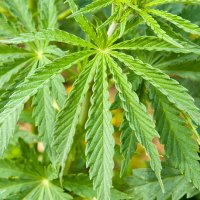While industrial hemp can be grown quite easily without pesticides, it can be a different story with some medical-grade cannabis.
Industrial hemp is usually grown out in fields and paddocks and pretty much left to grow like a weed (hence the name). It’s a very hardy plant that doesn’t require a great deal of care, potions or poisons. The farmer sows it, reaps it and that’s about it. If a few bugs have a bit a snack on the leaves while it grows, it’s no biggie.
Medical cannabis operations tend to be indoors; with strict controls over temperature, humidity, feeding and watering. Each plant is fussed over in order to produce the maximum of the desired compounds such as tetrahydrocannabinol (THC) or cannabidiol (CBD). However, the conditions can also be conducive to infestation by mites that eat the leaves and various forms of mildew. These conditions stress the plants and consequently affect the quality and production of THC and CBD.
The situation has led to what appears to be the extensive use of herbicides and pesticides in the USA’s cannabis sector. As growers are still finding their way through crop management; best practices in this regard can be scarce. In some cases, this has led to the abuse of chemicals that then find their way into the end product; at levels that are making some toxicologists nervous.
In Colorado, one company recently had four recalls of products in two months due to concerns over pesticide contamination. In late December, nearly 100,000 packages of marijuana edibles were also recalled; again in Colorado.
Among the pesticide chemicals being found in recalled products are myclobutanil, imidacloprid, avermectin, etoxazole and spiromefesin.
Some of these are banned in scenarios where the end product is for human consumption.
The use of these chemicals likely isn’t a case of evil intent by growers in most cases – it’s more about education; or lack thereof. Because of the status of medicinal cannabis in the USA, federal and state guidance on pesticide application is severely lacking.
While the states and industry grapple with the challenge, the situation will make some end consumers wary – and rightly so. Provenance of products will be questioned and organic medicinal cannabis products could enjoy new popularity.
Another sector the situation may assist is the CDB-from-hemp niche. While industrial hemp may not have anywhere near the levels of CBD that some medical cannabis strains have; the fact it can be grown free from poisons will be quite attractive.


